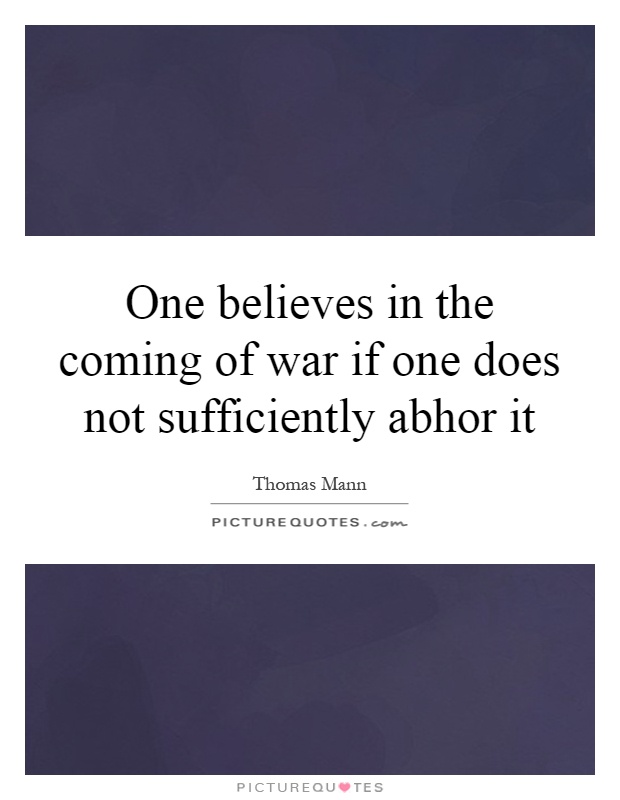One believes in the coming of war if one does not sufficiently abhor it

One believes in the coming of war if one does not sufficiently abhor it
Thomas Mann, a renowned German novelist and essayist, was a keen observer of human nature and the societal forces that shape our world. In his works, Mann often explored themes of morality, ethics, and the consequences of human actions. One of the recurring themes in Mann's writing is the idea that war is a destructive force that must be abhorred in order to prevent its coming.Mann believed that war was a manifestation of humanity's worst impulses – greed, aggression, and a lack of empathy for others. In his novel "The Magic Mountain," Mann portrays the outbreak of World War I as a tragic and senseless event that could have been prevented if people had been more willing to confront the horrors of war and work towards peace. Mann's characters grapple with the moral dilemmas of war, questioning the justifications for violence and the human cost of conflict.
In Mann's view, the key to preventing war is to cultivate a deep and abiding abhorrence for it. If people do not sufficiently detest the idea of war and its consequences, they are more likely to become complacent and allow conflicts to escalate. Mann believed that individuals have a moral responsibility to speak out against war and to work towards peaceful solutions to conflicts.
Mann's own experiences living through two world wars undoubtedly influenced his views on the subject. He witnessed firsthand the devastation and suffering caused by war, and he was deeply troubled by the human capacity for violence. Mann's writing reflects his belief that war is a moral failure that must be actively resisted and condemned.












 Friendship Quotes
Friendship Quotes Love Quotes
Love Quotes Life Quotes
Life Quotes Funny Quotes
Funny Quotes Motivational Quotes
Motivational Quotes Inspirational Quotes
Inspirational Quotes